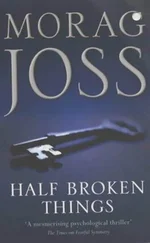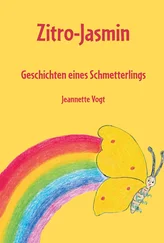Then the war ended. One day not long after I’d turned eighteen, Superintendent MacIntosh caught up with me to explain that, with the men all returning home, women were being laid off at the factories in favor of the veterans. Many of those women were certified teachers who were looking to get back their old jobs. Some of the boys coming back from overseas were teachers, too. Superintendent MacIntosh said he’d heard glowing things about my work, but I hadn’t even finished eighth grade, much less earned a high school diploma, and besides, the state of Arizona needed to give priority in hiring to those who’d fought for their country.
“So I’m getting the boot?” I asked.
“Unfortunately, your services are no longer needed.”
I stared at the fish-faced superintendent. I’d figured this day might come sooner or later, but I still felt like the floor had fallen out from under me. I knew I was a good teacher. I loved it and even loved traveling to all these remote places where no one else wanted to teach. I understood what Mr. MacIntosh was saying about needing to help out the returning troops. At the same time, I’d busted my behind teaching all those wild and illiterate kids, and I couldn’t help feeling a little burned about being told by Fish Face that I was now unqualified to do something I’d spent the last four years doing.
Superintendent MacIntosh seemed to know what I was thinking. “You’re young and strong, and you got pretty eyes,” he said. “You just find yourself a husband-one of these soldier boys-and you’ll be fine.”
THE RIDE BACK TOthe KC seemed to take about half as long as that first journey out to Red Lake, but that’s the way it always is when you’re heading home through familiar territory. The only adventure occurred when a rattler parked itself under my saddle one night, but it reared back and zipped off, doing those wildfire wriggles, before I could get out my gun. And then there was the airplane. Patches and I were heading east near the Homolovi Ruins, some fallen-down pueblos where the Hopis’ ancestors had once lived, when we heard the putt-putt of an engine in the sky behind us. I looked back, and a red biplane-the first I’d ever seen-was following the road east a few hundred feet above the ground.
Patches started to scutch about at the strange noise, but I held her in, and as the plane approached, I took off my hat and waved. The pilot dipped the plane’s wings in response, and as it passed us, he leaned out and waved back. I kicked up Patches and we galloped after the plane, me flapping my hat and shouting, though I was so excited that I had no idea what I was trying to say.
Never in my life had I ever seen anything like that airplane. It was amazing that it didn’t just fall out of the sky, but for the first time it dawned on me-Eureka!-what the word “airplane” meant. That was what it did. It stayed aloft because it was planing the air.
I only wished I had some students to explain all this to.
ALL THAT TIME Iwas teaching, I had never gone home, since the trip took so long. People say that when you return to the place where you grew up, it always seems smaller than you remember. That was the case with me when I finally reached the ranch, but I don’t know if it was because I had built it up in my memories or I had gotten bigger. Maybe both.
While I was away, I did write the family once a week and in return received long letters from Dad waxing eloquent and purple about his latest political convictions yet providing few details about how they were faring, and I wondered if the family had managed to keep it all together. But the place looked well run, the fences in repair, the outbuildings freshly whitewashed, a new clapboard wing on the main house, a big supply of split firewood neatly stacked under the porch roof, even a bed of hollyhocks and sunflowers.
Lupe was out front scouring a pot when I rode up. She gave a shriek, everyone came running from the house and barn, and there was a whole lot of hugging and happy tears. Dad kept saying, “You left a girl and you come back a woman.” He and Mom both had strands of gray in their hair, Buster had filled out and grown a mustache, and Helen had become a willowy sixteen-year-old beauty.
Buster and Dorothy had gotten married the year before. They lived in the new wing of the house, and it soon became clear to me that Dorothy was more or less running the place. She oversaw the kitchen, bossing Lupe around something fierce, and handed out the daily work assignments for Buster, Apache, and even Mom, Dad, and Helen. Mom complained that Dorothy had gotten a tad high-handed, but I could tell they were secretly glad to have someone doing what I used to do.
Mom’s biggest concern was Helen. She had reached marrying age, but pretty as she was, that girl just lacked get-up-and-go. Mom worried that Helen might be suffering from neurasthenia, a vague ailment wealthy women got that made them want to lie in a room all day with a wet cloth over their eyes. Helen was happy to sew and bake pies, but she hated any kind of work that made her break into a sweat or gave her hands calluses, and most of the Rio Hondo ranchers looking for wives wanted a woman who could not only cook and clean house but also help out with branding calves and drive the chuck wagon during roundup. Mom’s plan was to send Helen to the Sisters of Loretto-hoping that with a little polish, she’d attract a citified man in Santa Fe-but Dorothy argued that all the earnings from the ranch needed to be reinvested in machinery to raise crop yields. Helen herself was talking about how she’d like to move to Los Angeles and become an actress in the movies.
The morning after I returned, we were eating breakfast in the kitchen, Mom passing the teapot around. I’d developed a taste for coffee in Arizona, but Dad still allowed nothing stronger than tea on the ranch.
After cleaning up, Dad and I walked out onto the porch. “You ready to get back in the corral?” he asked. “I got a couple of new saddlebred fillies that I know you can work wonders with.”
“I don’t know, Dad.”
“What do you mean? You’re a horsewoman.”
“With Dorothy in charge, I’m not sure there’s a place for me here anymore.”
“Don’t go talking nonsense. You’re blood. She’s just an in-law. You belong here.”
But the truth was, I didn’t feel I did. And even if there was a place for me, it was not the life I wanted. That plane that had flown overhead at the Homolovi Ruins had got me to thinking. Also, I’d seen a number of automobiles in my years in Arizona, and they gave me a sinking feeling about the future prospects for carriages-and carriage horses.
“You ever think of getting yourself one of those automobiles, Dad?” I asked.
“Consarned contraptions,” Dad said. “No one’ll ever look as smart in one of those fume belchers as they do in a carriage.”
That got him going about how President Taft had taken this country in the wrong direction by getting rid of the White House stables and replacing them with a garage. “Teddy Roosevelt, now, there was a man, the last president who truly knew how to sit a horse. We’ll never see his like again.”
As I listened to Dad, I could feel myself pulling away from him. All my life I’d been hearing Dad reminiscing about the past and railing against the future. I decided not to tell him about the red airplane. It would only get him more worked up. What Dad didn’t understand was that no matter how much he hated or feared the future, it was coming, and there was only one way to deal with it: by climbing aboard.
Another thing that airplane made me realize was that there was a whole world out there beyond ranchland that I’d never seen, a place where I might finally get that darned diploma. And maybe I’d even learn to fly an airplane.
Читать дальше









